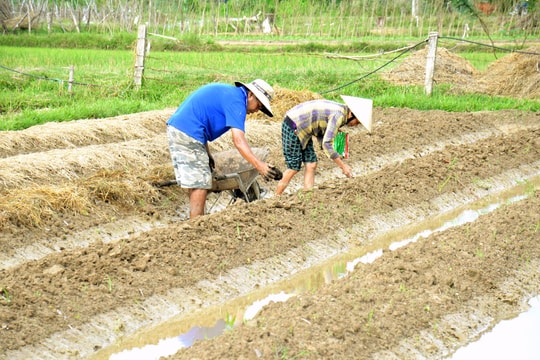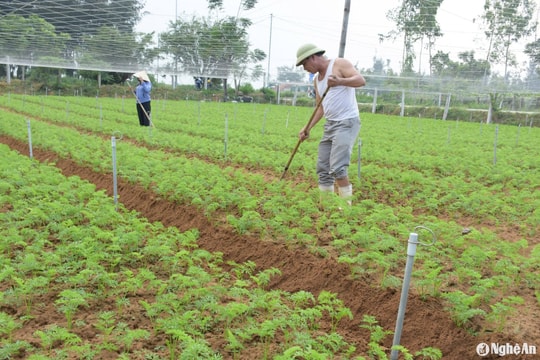Winter peanut crop in Nghe An is good, good price
Currently, Nghe An people are harvesting winter peanuts. This year, peanuts have high yield and good selling price, so people are very excited.
.jpg)
Having just finished harvesting 1 sao of peanuts, Mr. Cao Van Cong (Hamlet 1, Dien An, Dien Chau) was very excited when the winter peanuts had a good harvest and high selling price. Mr. Cong said: "At the beginning of the season, the peanuts encountered prolonged heavy rain, deeply submerged in water; then, when the peanuts were still firm, there was a flood, it seemed like they would lose everything. However, thanks to good irrigation work and active care, this winter peanut crop still achieved a good yield. Each sao of peanuts yielded 1.2-1.3 quintals."
This winter crop, the whole Dien An commune planted 25 hectares of peanuts, with an estimated yield of 26 quintals/ha, and an output of about 65 tons. For a long time, peanuts have been a crop that has brought high economic efficiency to the people of Dien An. Usually, people produce two crops a year, winter peanuts and spring peanuts. Spring peanuts have a high yield and are planted on a larger area than winter peanuts.
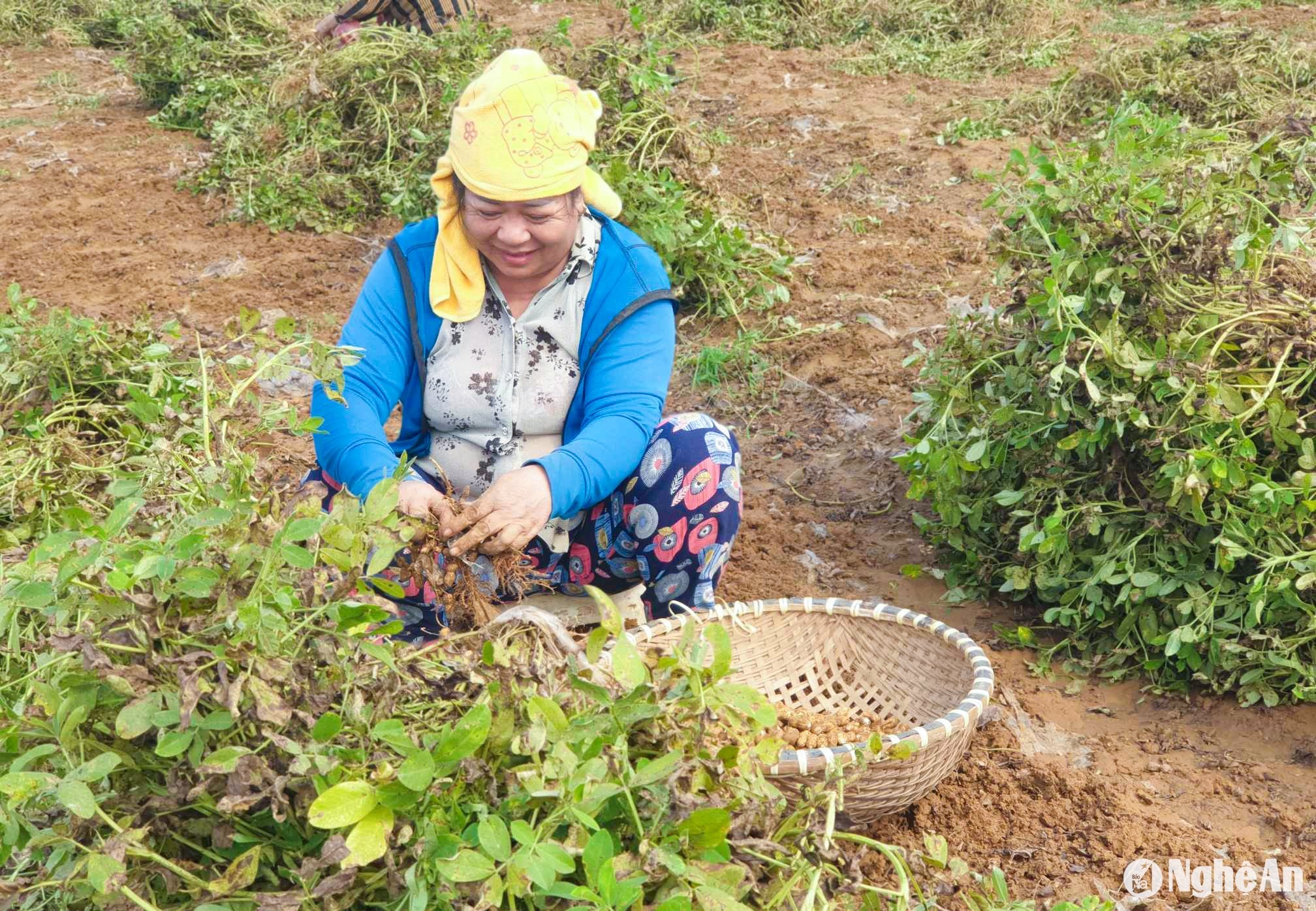
However, the price of winter peanuts is higher than spring peanuts because people sell peanut seeds. Ms. Nguyen Thi Ty (Hamlet 4, Dien An Commune) said: "If spring peanuts cost 30,000 VND/kg, winter peanuts cost 38,000 VND/kg. People mainly grow peanuts for seeds for the spring crop and sell them to households in need."
In Dien Thinh - a locality considered the "peanut barn" of Nghe An, this winter crop, Dien Thinh people planted 255 hectares of peanuts. Currently, people have harvested 90% of the area. Although this crop, the weather was very unfavorable when the rain and floods were complicated, the peanut plants were heavily affected, but the peanut yield was still quite good, estimated at about 1 quintal/sao. Ms. Thu in hamlet 8, Dien Thinh commune planted 4 sao of peanuts, the yield reached 4-5 quintals of dry peanuts, with the current selling price, she earned 15-16 million VND, minus the cost of seeds and fertilizers, she had about 12 million VND left.
.jpg)
“My family grows 4 sao of winter peanuts, L20 variety. Compared to previous years, this year’s crop is good, with an estimated yield of 1.1 quintals/sao. Compared to last year, this winter crop yield is about 15-20 kg/sao higher. The main purpose is to grow seeds for the next crop and supply seeds to other growing areas,” said Ms. Thu.
Due to the prediction that this year will have erratic weather and heavy rain, right from the beginning of the production season, the locality has encouraged people to plant short-term peanut varieties that still ensure good productivity such as L20, L14, etc. The entire peanut area after planting is covered with nylon to ensure technical standards; during heavy rains causing flooding, drainage work is well handled to ensure peanut growth and ensure productivity at the end of the season.
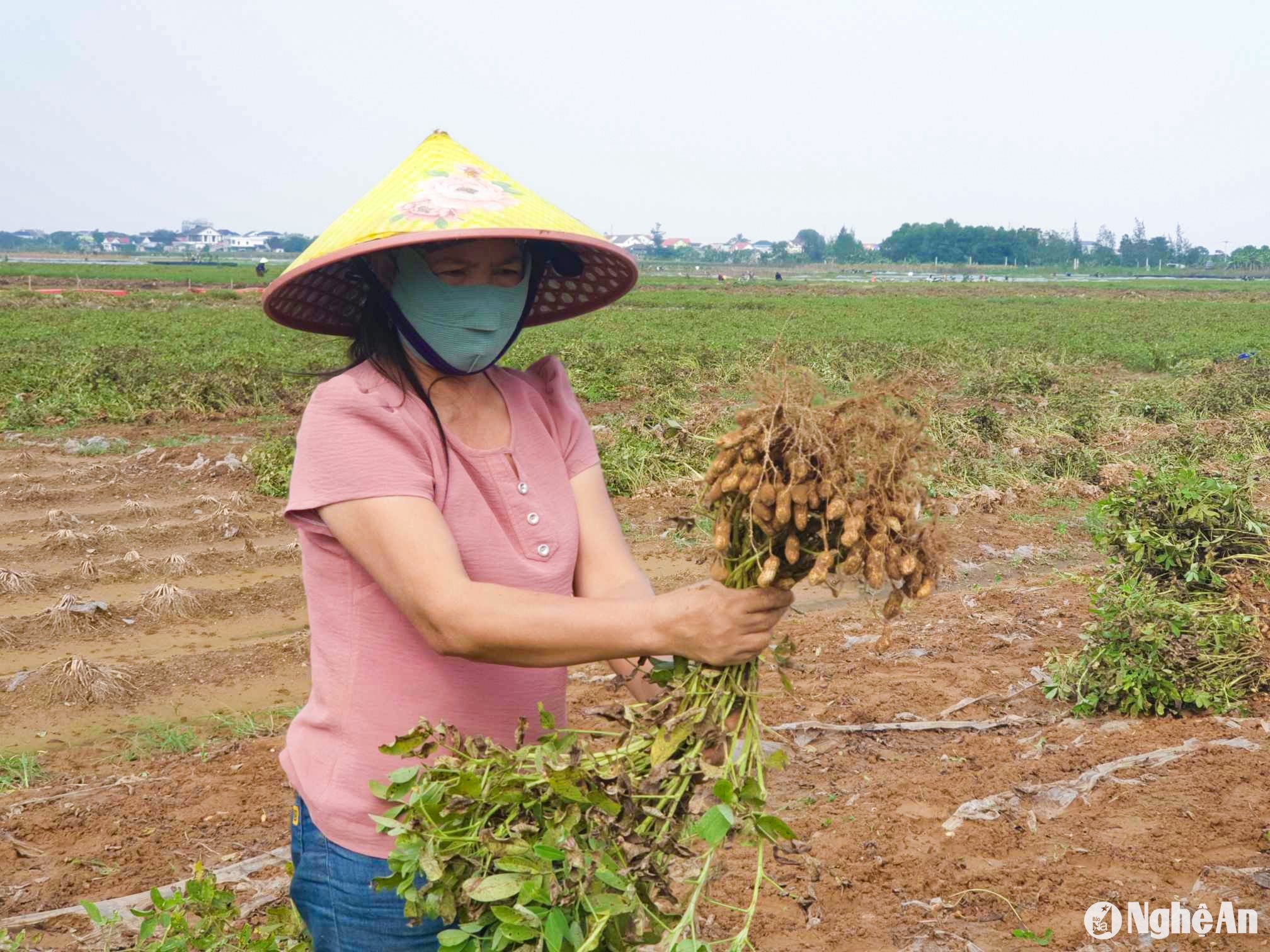
This year's winter peanut crop has just been a good harvest, and the selling price is quite high. Currently, the price of peanut seeds fluctuates between 38,000 and 40,000 VND/kg. With this price, people have a stable income of about 4.5 million VND/sao. "Because the winter peanuts are mainly peanut seeds, the selling price is high and consumption is quite easy. This year, the peanut crop is good and the price is good, so people are very excited," said Mr. Hoang Hai - Chairman of the Farmers' Association of Dien Thinh commune.
In the 2024 winter crop, Dien Chau will produce 1,000 hectares of peanuts. Winter peanuts are planted early and are mainly grown in coastal sandy soil areas with varieties L14, L20 and red peanuts. Growing autumn-winter peanuts is not difficult and does not require too much technique, just need to prevent damage from rats and have a full care and fertilization regime.
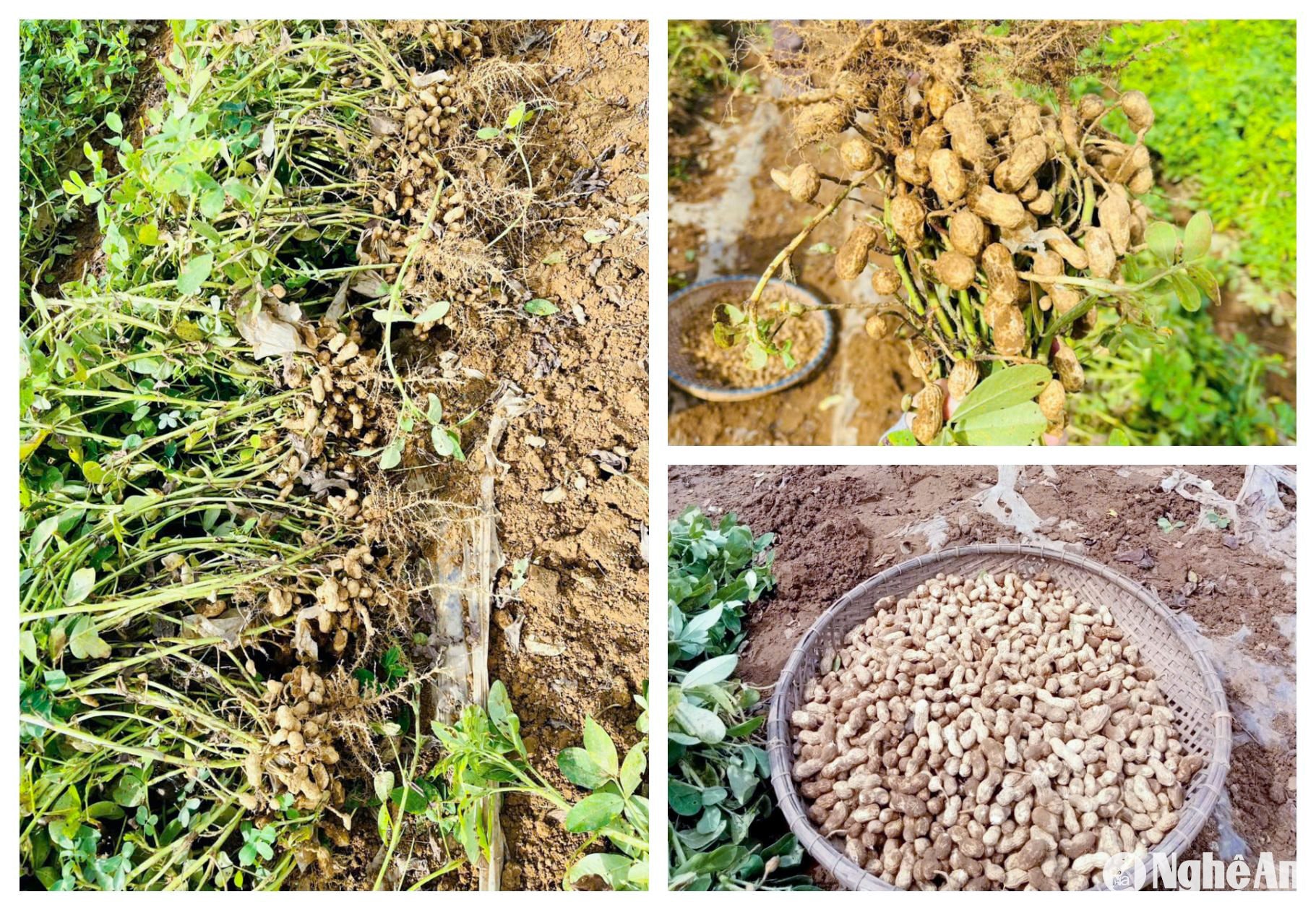
This winter crop, Dien Chau farmers supplied the market nationwide with 1,700 tons of peanut seeds. The high price of peanut seeds brings a good income to Dien Chau people. Not only that, by proactively sourcing peanut seeds, it will help reduce the use of seeds bought illegally on the market, helping to reduce input costs in the next spring crop.

